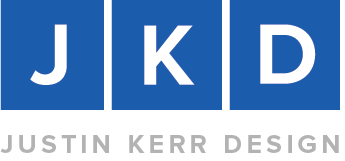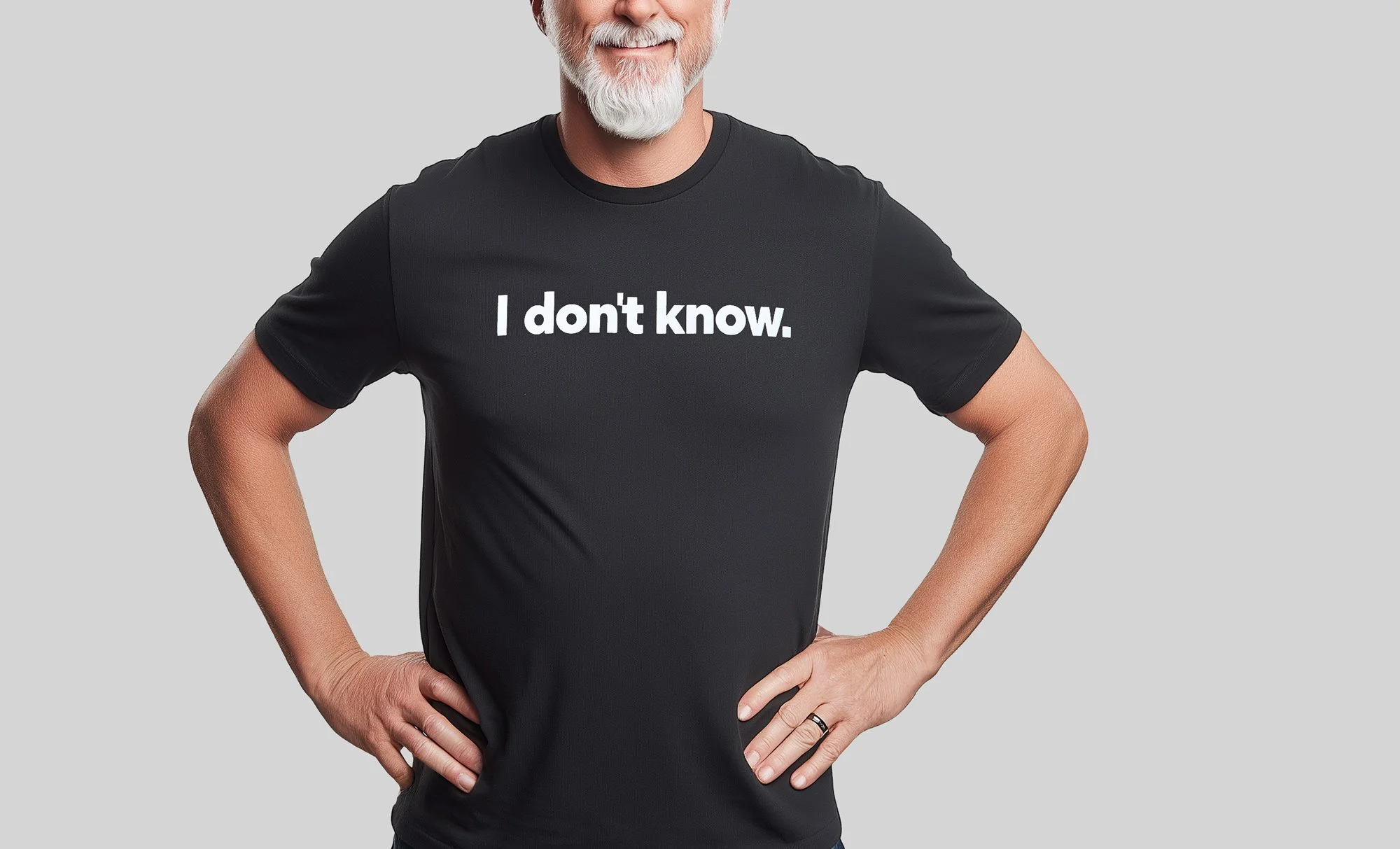I don’t know.
A couple of years ago I attended my first “Fuckup Night” event in downtown Providence. Yes, it’s a real event. The goal of these gatherings is to listen to the “fuckup” stories of other business owners and, in the process, begin to break the cycle of shame around failure. I didn’t plan to tell my story that night but when they asked for volunteers I raised my hand. My story took place during the first few years of my business when I thought it was necessary to look successful and never admit how little I knew about being an entrepreneur. I refused to say, “I don’t know” and it resulted in a lot of debt — both financial and relational.
Since then, I have worked to incorporate “I don’t know” into all aspects of my business and it has been one of the best decisions I’ve ever made.
The problem of certainty
Certainty is the opposite of “I don’t know.” Skye Jethani, one of my favorite authors and speakers says, “Certainty makes us stupid,” because it kills curiosity and the creative process.
Certainty locks us into a place where we stop seeking knowledge and understanding. It may feel like a safe place or a position of strength but it’s actually a very dangerous place to hang out. In our blind certainty we can end up leading clients — who rely on us as experts — down a bad path. It also robs our clients of the value that comes from discovery, because we’ve closed ourselves off to learning and growing through the process.
The benefits of “I don’t know”
“I don’t know” opens the door to learning, growing, and understanding.
When I graduated from design school I was certain I knew everything I needed to know about how to become a successful designer. But I graduated into an economic recession and design jobs were scarce so I roofed houses for the summer while I looked for a design position. Hauling 50 lb. packs of shingles up a 35 ft. ladder in the August heat managed to scrape off the layer of hubris that had built up during design school.
I finally landed a job in a quick-print shop as a production artist which, at the time, was not where I wanted to be in my career. But I learned a lot about print production, which I carried with me into my next job at a small design shop, where I learned photo art direction, which I carried with me into my next job at an in-house design department at a university. I’ve steadily accumulated knowledge, skills, and experience that have made me more valuable to my clients as I’ve moved forward. Would I have learned all these skills if I had managed to land a high-level agency position directly out of design school? Maybe, but I don’t regret the rich journey my lack of certainty has provided over the years.
“I don’t know” contributes to authenticity and builds trust.
One of the networking mantras I learned when I first launched my business is, “People work with others who they know, like, and trust.”
Getting to know me is easy — the name tag I wear at every networking event simply says, “Pirate” because if it said “brand strategist” I’d be standing alone by the food table. Whether you’ll like working with someone depends a lot on personality and chemistry and I’m comfortable with the fact that I won’t click with everyone and I’m not a good fit for some clients. But if I make it past the know and like stages, the level of trust I build with a client depends a lot on my authenticity.
I believe my clients trust me because I have an growth mindset and I’m willing to say, “I don’t know” which is always followed by, “Let me look into that” or “Let’s find out together.” “I screwed up” can also be a big contributor towards developing trust, but that’s a topic for another post.
I emphasize the journey and discovery elements when I work with a client to develop their brand and I never hesitate to share the story of how I rebranded myself three years after starting my business because I wasn’t being authentic to who I was. The honesty and humility of admitting that I didn’t know who I really was in the nascent stages of my own business goes a long way to building trust with my clients and convincing them I will help them find their authentic brand.
The irony isn’t lost on me that I’m writing about the power of “I don’t know” while positioning myself as someone with insights worth sharing. But here’s what I do know: those three words have shaped my business, deepened my client relationships in ways I never expected, and made me a better designer, strategist, and human being. If you take anything away from this post, let it be permission to step away from certainty and confidently say, “I don’t know.”

